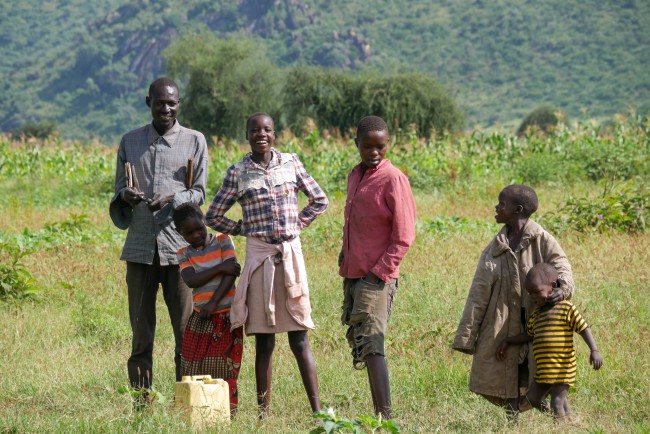
Climate, Peace and Security
We know about the impact of climate change on communities. Heat-waves. Droughts. Flooding. Cyclones. Competition for livelihoods. Local conflict. The impact of climate change is already visible. It is already felt.
Yet, most global attention on the effects of climate change remains narrowly focused on security threats. The peace dimension is too often missing. For example, climate adaptation efforts can unintentionally worsen tensions and risk being unsuccessful if they are not sensitive to local conflict dynamics. And the voices of local actors, who best understand these local dynamics and translate them into practical, community-driven adaptation initiatives, are rarely heard when shaping adaptation efforts.
That is why we are implementing CLIMPSE, a 30-month project co-funded by the Service for Foreign Policy Instruments (FPI) of the European Commission that aims to look at the bigger picture of climate, peace, and security and act upon it. CLIMPSE is about showing what becomes possible when local peacebuilders have the knowledge, tools and platforms to act on the connections between climate, peace, and security. But right now, those local solutions often stay local. With CLIMPSE, those local experiences, lessons, and ideas are amplified and will help shape national, regional, and international policies, while also serving as examples to inspire adaptation and learning across GPPAC’s global network.
We will create the conditions for it to become normal (expected, even) to think, talk, and act on climate, peace, and security together, not in isolation.
CLIMPSE is deeply rooted in our network. 74 local peacebuilders have co-created this project, collectively identifying the goal and activities. The project is implemented across three priority regions, with GPPAC members leading in each: La Coordinadora Regional de Investigaciones Económicas y Sociales (CRIES) in Latin America and the Caribbean, Foundation for Tolerance International (FTI) in Central Asia, and the Regional Centre for Strategic Studies (RCSS) in South Asia.
CLIMPSE: See More. Act Together.
On the national and local level, CRIES, FTI, and RCSS will raise awareness among peacebuilders of their own role working at the climate, peace, and security nexus, supporting them to articulate their crucial contributions more confidently and engage more effectively with policymakers at multiple levels. The goal is to enable dialogue and exchange between local peacebuilders and policymakers, ensuring that local perspectives and expertise are visible, valued, and increasingly inform climate, peace, and security discussions at regional and global levels.
For questions or inquiries, please reach out to
Cândida Silva, Project Coordinator c.silva@gppac.net
Victoria Seeck, Climate-Sensitive Peacebuilding Policy Officer v.seeck@gppac.net

Localising Climate, Peace and Security: A Practical Step-by-Step Guidance Note for Local Peacebuilders
The GPPAC practical Step-by-Step Guide is a resource on how to document, assess, and address climate-related security risks at the local level.